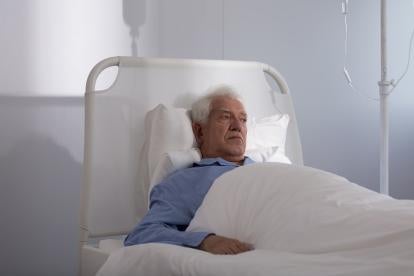Effective July 1, 2019, the new Colorado Candor Act (CCA) (Senate Bill 19-210) adds a new Article 51 to the Colorado Health Code (CRS §§ 25-51-101 et seq.), establishing a legally protected process for communication with patients/families and a format for resolution after an “adverse health care incident” has occurred involving a patient.
Under the CCA, an adverse health care incident means an “objective and definable outcome arising from or related to patient care that results in the death or physical injury of a patient.” The CCA’s process, if followed correctly, can be of significant benefit to nursing homes and assisted living facilities in expeditiously investigating, communicating, and potentially resolving compensation issues related to adverse resident outcomes stemming from patient care activities.
However, the process to be followed under the CCA is detailed, cumbersome, and strict, so that the confidentiality and protection from compelled disclosure of the “open discussion” activities under this statute remain legally intact. The CCA permits a health care provider or health facility (including a nursing facility or assisted living facility, or any other facility licensed by Colorado Department of Public Health and Environment (CDPHE), or any individual licensed, certified, or registered under Colorado law to administer health care), to engage with the patient or his/her family/legal representative to have an “open discussion” to understand what happened, what steps may be taken to prevent similar outcomes in the future, and to address, if indicated, appropriate compensation in the event of an adverse outcome.
Key elements of the CCA are as follows:
•Participation by health care facilities and providers is voluntary.
•The process is initiated by the health care provider involved in the adverse incident.
•The process may also be initiated by another provider jointly with the health facility involved in the adverse incident.
•However, the “open discussion” will not be protected if initiated by the patient or patient’s family/representative.
•If the health care provider and/or health care facility wishes to engage in “open discussion,” the provider/facility must provide the patient written notice of a desire to enter into an “open discussion” under the CCA within 180 days after the provider/facility knew or reasonably should have known of the adverse incident, and must include an explanation to the patient of his/her right to obtain and authorize the release of medical records, a statement that the patient also has the right to seek legal counsel, and copies of applicable Colorado statutes of limitations, along with notice that the time to file a lawsuit is limited and will not be extended by engaging in an “open discussion” under the CCA.
•The notice must further inform the patient of the confidential nature of any “open discussion” under the CCA.
•If appropriately initiated (as described above), an “open discussion” permits:
–confidential investigation of the event;
–communication of that investigation and its result with the patient/patient’s representative;
–communication with the patient/patient’s representative regarding the steps the health care provider/facility will take to prevent future occurrences of the adverse health incident; and
–a determination of whether an offer of compensation is warranted.
•If a provider/facility wishes to communicate with the patient/patient’s representative regarding compensation for the adverse incident, the CCA details how a provider should communicate a decision to offer, or decision not to offer, compensation.
•Offers of compensation must be in writing, but all other communication related to possible compensation may not be in writing.
•If it is determined that no offer of compensation is warranted, the provider/facility may only orally communicate that decision to the patient/patient’s representative.
•Any compensation resulting from the “open discussion” cannot be construed as:
–a payment resulting from a written claim or demand for payment;
–a final judgment or settlement for purposes of reporting by an insurance company;
–a malpractice settlement;
–a final judgment or settlement under the Health Care Availability Act;
–a final judgment or settlement under the Medical Transparency Act; or
–a payment requiring report to a licensed professional’s licensing board.
•If the above steps are strictly followed, the “open discussion” will not constitute an admission of liability, is privileged and confidential, and cannot be discovered, disclosed, or admitted in any subsequent judicial, administrative, or arbitration proceeding that may arise from the adverse incident, and is not subject to discovery, subpoena, or other means of legal compulsion for disclosure.
•However, any communication, memoranda, work product, document, or other material that is otherwise subject to discovery that is not prepared specifically for use in an “open discussion” under the CCA is not confidential.
•Although a patient may withdraw from the “open discussion” at any time, a withdrawal does not jeopardize the confidentiality of “open discussion” communications to that point in the process.
Because it is not addressed in the CCA or under National Practitioner Data Bank guidance, it is unclear whether a resolution reached under an “open discussion” would be reportable to the National Practitioner Data Bank.
Given the complexity of the CCA and the potential for loss of confidentiality should this process not be strictly followed, a health care provider should seek the advice and assistance of competent counsel if considering entering into a CCA “open discussion.”
Please let us know if you would like any additional information concerning the CCA.



 />i
/>i

